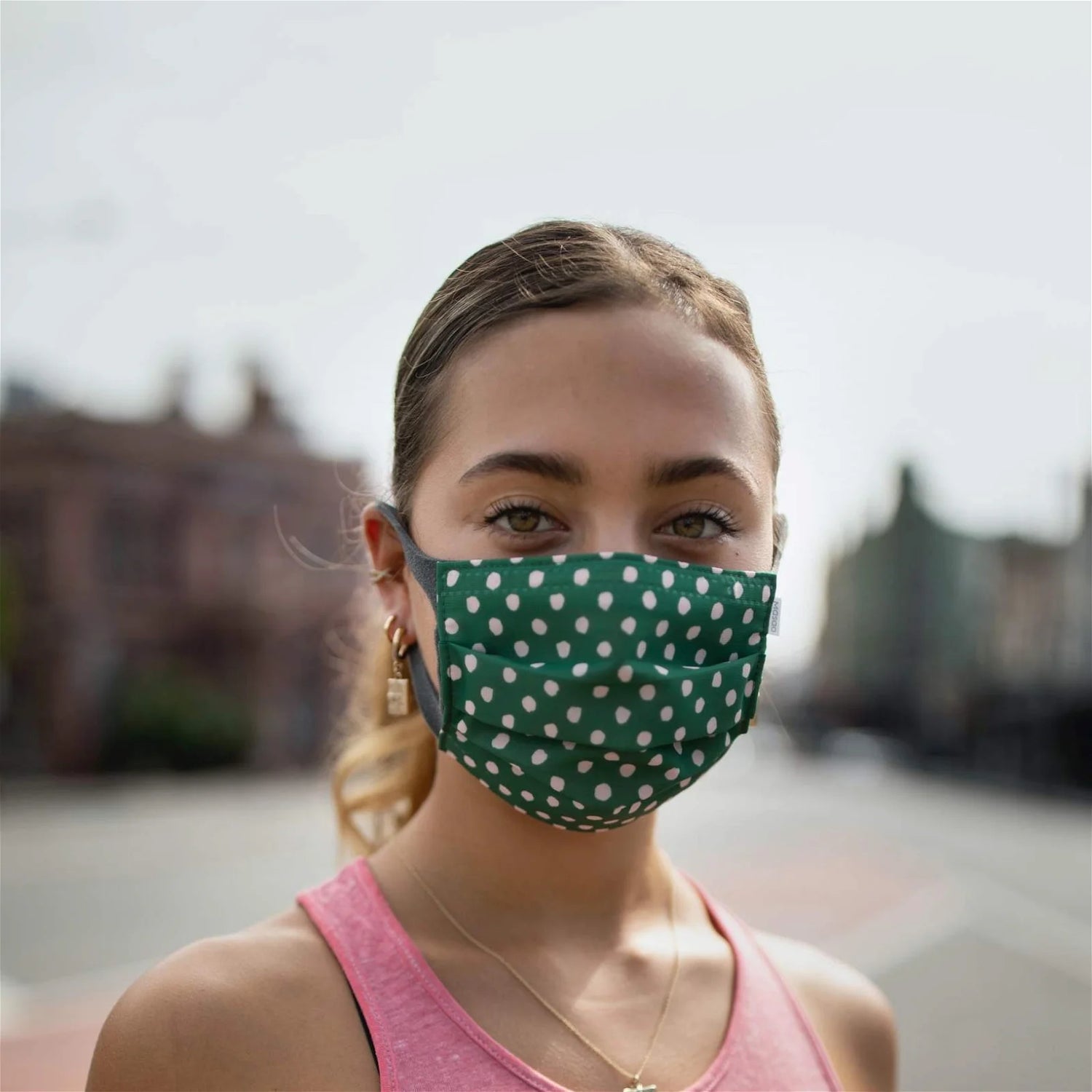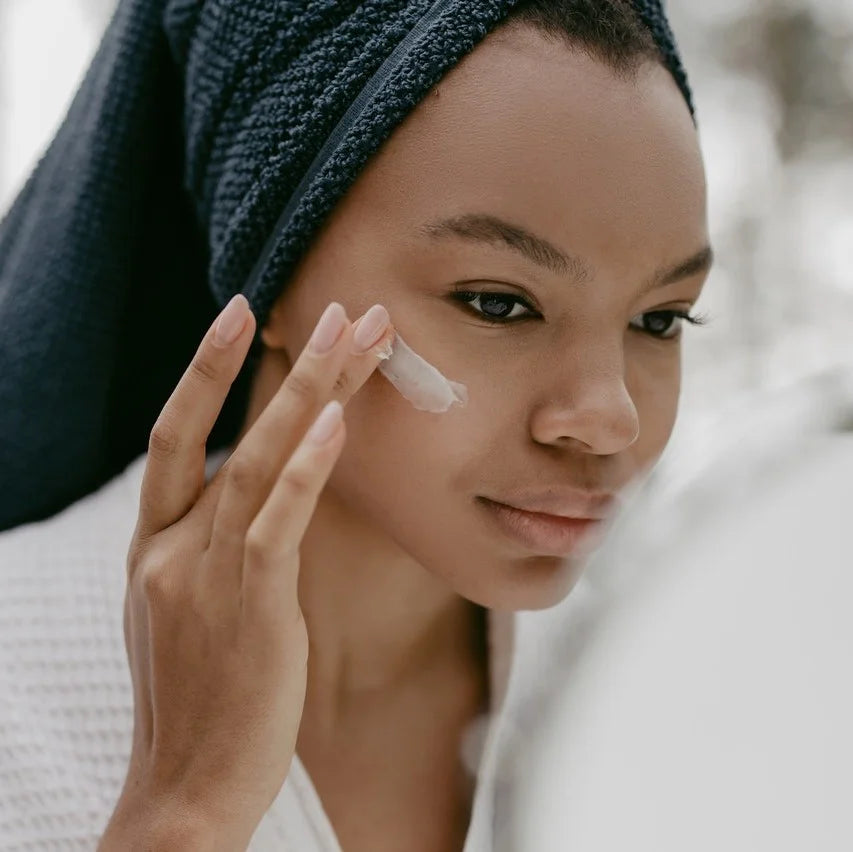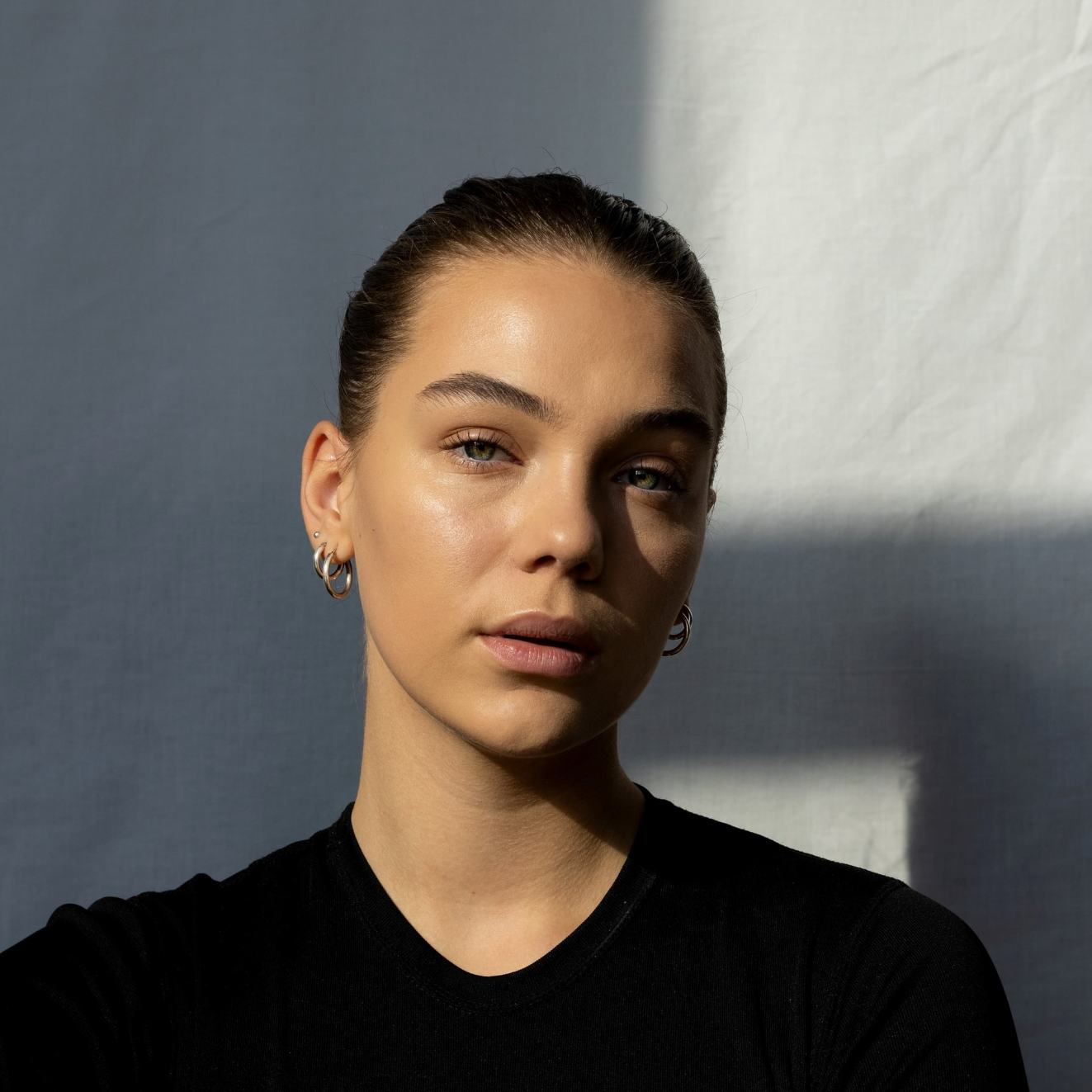Just when you thought your skincare routine was finally on point… here come the masks and the annoying acne that comes along with them. Acne mechanica, currently quite popularly known as maskne, refers to breakouts of the skin that are caused by wearing a protective mask. Such local breakouts are usually caused by friction, rubbing, stretching, squeezing, or pressure. Even though a whole bunch of skincare brands jumped into the opportunity to offer their clients all kinds of maskne-specific products, we think it’s important to get to the root of the issue and discuss what causes maskne, what are the best ways to prevent it and what can you do to fight it without changing your entire skincare routine.
What causes maskne?
As mentioned before, maskne is caused by constant rubbing, squeezing, stretching, etc. But how? First of all, when using a mask, warm and moist air is trapped under it, creating a perfect environment for bacteria to grow and multiply. This excessive humidity may also cause skin barrier damage and make the skin a lot more vulnerable. Prolonged mask usage also leads to excessive sweating and oil buildup, the skin cell renewal slows down and the dead skin cells clog the pores and create perfect conditions for acne to develop.
What are the best ways to avoid maskne?
1. Not all masks were created equal. Choose the right one.
Let’s get the obvious out of the way first – always make sure your mask is clean. Single-use masks make this task easy but if you choose to be more environmentally-friendly and choose a reusable one, dermatologists suggest opting for a mask that is 100% cotton because it allows your skin to breathe better. Wash your mask often. Use soap or a gentle laundry detergent, suitable for sensitive skin, and rinse really well.
2. Say goodbye to makeup (at least temporarily)
Your skin is dealing with a lot down there and it doesn’t need more chemical compounds in the mix. If you desperately need some sort of coverage, you might want to choose a tinted moisturizer or a tinted sunscreen.
3. Adjust your skincare routine
Stick to the basic products that you would use if your skin barrier was damaged. A gentle cleanser and a mild moisturizer might be all that you need to give your skin a break from constant irritation.
4. Avoid fragranced skincare.
Even if you tolerate fragrances well, you might want to avoid them in order not to irritate your already irritated skin even more.
5. Refresh your face with water. Often.
During the day, refresh your face by washing it with cool (but not ice-cold) water. This will help you get rid of sweat and other impurities. Be gentle: dab the skin, don’t rub it. Before putting your mask back on, reapply the same gentle product that you used to moisturize and prepare it before.
What are the best ways to treat maskne?
1. Simplify your daytime skincare routine.
Do not opt for the exact same methods that you choose when you treat regular acne. Maskne requires you to be more careful since you might have to continue wearing a mask while you’re treating it. As said before, for daytime choose mild products and skip the multiple layers. And don’t forget sunscreen. Even in the mask season, sunscreen is still one of the best things you can do for you skin long term.
2. Add a few touches to your nighttime routine.
At night, you might want to choose products that work well for problematic skin. Choose glycolic acid for gentle exfoliation and salicylic acid for fighting the blemishes that are already there and creating an inhospitable environment for bacteria in the future.
3. Make sure it’s actually maskne.
If your skin itches like crazy, it might not be maskne – it might be contact dermatitis. Consult a healthcare specialist since they might offer you specific effective treatment methods such as prescription-strength hydrocortisone.
What about the actives?
You’re probably wondering whether you should continue using such actives as vitamin C, retinoids, niacinamide, hyaluronic acid, etc. Sadly, there is no one definitive answer. If your skin tolerates them well, you might want to keep them in your routine, only tone them down a little bit. Be patient with your skin, try out different approaches, and notice what works and what should be changed.
IMPORTANT: Maskne is not a reason to stop wearing protective masks. Health and safety come first.




Leave a comment
All comments are moderated before being published.
This site is protected by reCAPTCHA and the Google Privacy Policy and Terms of Service apply.